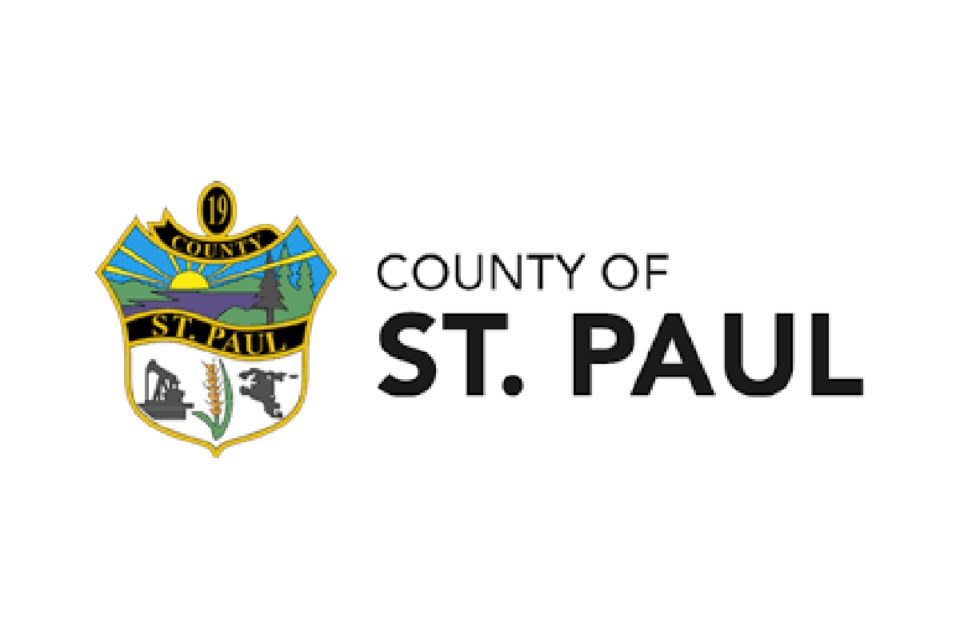ST. PAUL – County of St. Paul council is seeking guidance on how to deal with the intersection at Highway 29 and Highway 41 north of Elk Point, during a delegation with Bonnyville-Cold Lake-St. Paul MLA Scott Cyr on Oct. 8.
The MLA has been visiting constituency municipalities to ask what their priorities are, which included attending the recent County council meeting.
Reeve Glen Ockerman said the intersection on Highway 29 and 41 is one of council’s growing concerns. “It's such a safety concern . . . there’s been some fatalities there,” he said.
Ockerman expressed frustration that projects don't happen until a certain amount of fatalities or damage have been caused. “But it's such a main corridor in northeast Alberta.”
Cyr acknowledged the issue, noting other municipalities in the region want something done “with that triangle.” The MLA encouraged council to work with other municipalities to come up with some potential funding, and a design so he could take it up to the province.
To move forward with a project, “We need to be able to present something,” explained Cyr. “Right now, I’ve got nothing.”
The idea would be to present what municipalities are specifically aiming to do, what they want to see, and to show the need for an improvement. “As the MLA, I get the ability to advocate, but something needs to happen.”
Fishing in the Lakeland
Coun. Maxine Fodness also asked the MLA about addressing declining fish population in lakes, citing Lottie Lake for example. “They used to have fish in that lake,” she noted.
Cyr recognized the issue. He said that if it was up to him, lakes in the Lakeland needing to be stocked would already have been stocked this summer.
“The problem we’re running into right now, and sorry I can’t make this up – [is] we need to consult before we stock lakes,” he said.
Despite delays, Cyr reassured council that the provincial government is actively working on a solution, noting Minister of Forestry and Parks Todd Loewen is setting up a special advisory group to help handle the issue.
Prosecutor shortages and rural crime
Rural crime was another topic of concern during the delegation. Ockerman said that rural crime is “very high” and appears to be increasing. He inquired about the progress being made with local judges and prosecutors in addressing the issue.
Cyr said the current “catch and release” system for criminals is not effectively deterring crime. He mentioned that while some reforms have been made to bail hearings, more work is needed to fix the system.
And as far as prosecutors in the region go, he said the St. Paul region, which is a hub for many other municipalities, has become a training ground for new prosecutors, who often leave after gaining experience, adding to the strain on the justice system in the area.
“We have been short [in] prosecutors in St. Paul, probably by, if memory serves me, about 30 per cent. We’ve become the training ground for all the prosecutors, which is what the problem is. You bring them in, they put their time in, and they leave.”
Addressing addiction is also a key factor in tackling rural crime, according to the MLA, explaining that a recovery model is required.
“The other thing that we've been doing is recovery,” he said, explaining that many individuals involved in crime are struggling with addiction, and the province can’t just arrest its way to resolve rural crime.
He said work is being done with Minister of Public Safety and Emergency Services Mike Ellis to create recovery initiatives for “individuals that can no longer make decisions because their addictions are playing large part in their lives.”
Cyr also touched on the two new plainclothes surveillance teams, led by the Alberta Sheriffs, to support police in northern and southern rural Alberta.
He said that while he is thankful for the initiative, the teams have been focused a lot on the Calgary and Edmonton areas. “We need to get out in rural,” he said, adding he will continue to advocate to the province to get more support in the Lakeland.



